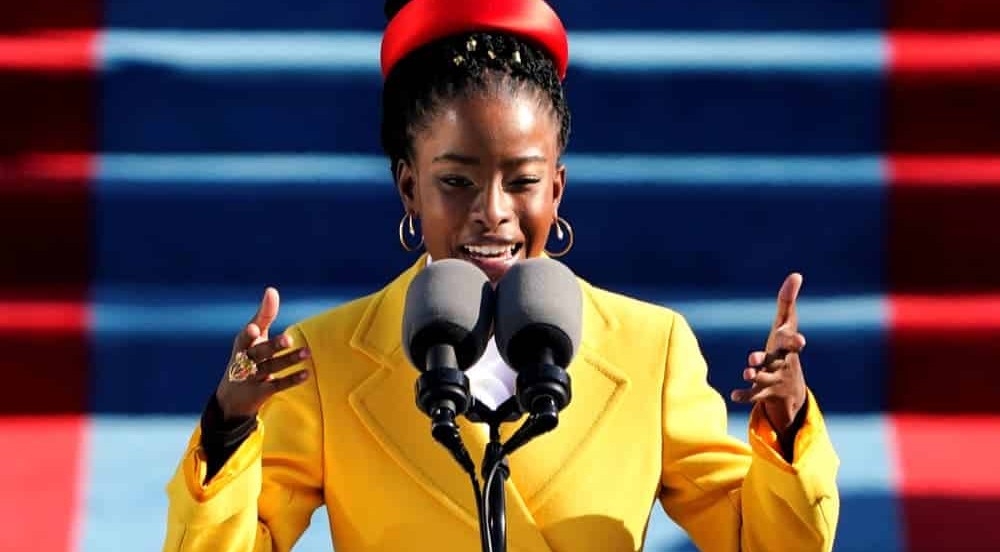Kamala Harris wasn’t the only Black woman centerstage yesterday. Amanda Gorman, the first youth poet laureate, shared brilliant words of resilience and redemption at the inauguration. With every word she painted a picture of progress that will certainly ring through the minds of many Americans for days to come. Her poignant reflections on the country’s past and her vision for progress were brought to life through masterful delivery. Through this performance Gorman has marked a place for herself in the African American oral tradition.
Marginalized people have long shaped society’s image for a better future by uncovering difficult truths through spoken and written word. These contributions gave rise to the notion of “speaking truth to power.” Frederick Douglass, Martin Luther King Jr, and Malcom X are often viewed as American manifestations of this tradition. Though the oral tradition is often associated with male voices, yesterday Gorman reminded us of the late Maya Angelou, who spoke at Bill Clinton’s inauguration.

In a 2013 interview with Ebony, Angelou reflected on the power of her voice. She recognized her voice had the power to kill after she disclosed the name of her rapist to her family, and he shortly thereafter showed up dead. She was mute for several years before leaning into the healing power of her voice. Her candor and ability to see things from a unique perspective is reflected in her literary work and her Ebony interview where she asserts that we aren’t one thing or another; we are one thing and another. This idea can be traced in Gorman’s poem “The Hill We Climb” as well. In the poem’s opening stanza, Gorman discusses the co-existence of light and shade. She acknowledges our country’s shortcomings while also honoring the integrity of American ideals. As Gorman called on this country to rise and rebuild, we heard echoes of Angelou’s And Still I Rise. This through-line connecting the bold Black voices of today to our past leaders gives us the strength to rise again.













